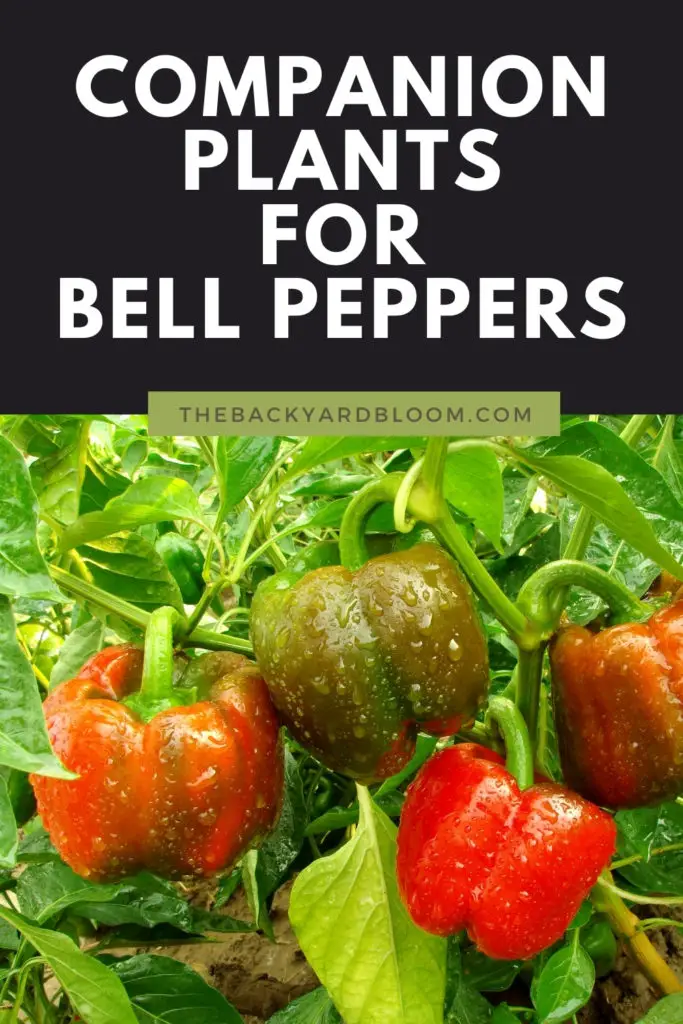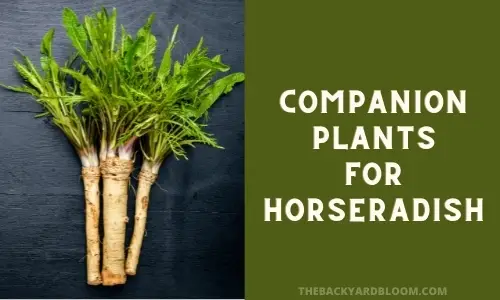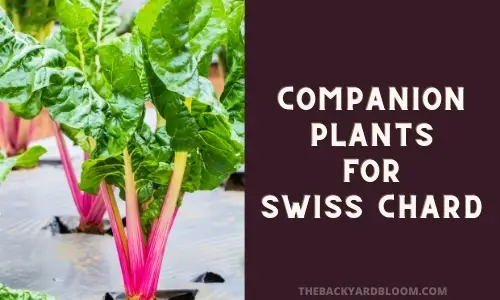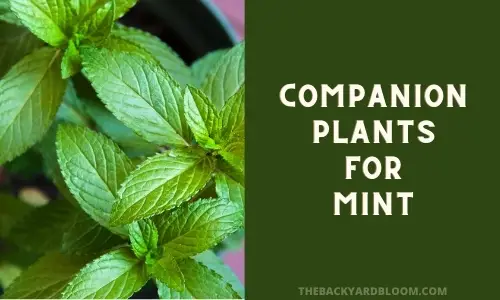Please note that this post may contain affiliate links. You can read my full affiliate disclosure at the bottom of the page.
If you are growing bell peppers in your garden you might be wondering what to plant with your bell peppers. Using companion planting with bell peppers can help your crops thrive and help keep unwanted pests away. In this article, we go over what are good companion plants for bell peppers and what not to plant with bell peppers.
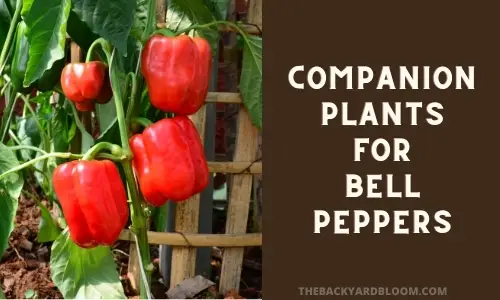
Good Companion Plants for Bell Peppers
- Basil
- Beans
- Beets
- Buckwheat
- Carrots
- Cucumbers
- Chives
- Coneflowers
- Garlic
- Geraniums
- Ginger
- Lettuce
- Marjoram
- Marigolds
- Nasturtiums
- Oregano
- Onions
- Parsley
- Peas
- Petunias
- Radishes
- Rosemary
- Squash
- Spinach
- Tomatoes
Basil: Many experienced gardeners claim that growing basil as a companion crop for peppers will enhance the flavor of your peppers. It also can keep away some unwanted pests like aphids, thrips, and spider mites. Find companion plants for basil here.
Beans and Peas make good companion plants as both will add nitrogen to the soil, which bell peppers can benefit from.
Buckwheat attracts pollinators and other beneficial insects.
Carrots thrive when used as a companion plant with bell peppers. Find other companion plants for carrots here.
Chives and Onions make good companion plants for peppers because they provide repellent for aphids, slugs, and other unwanted insects.
Corn can provide a barrier to wind for bell peppers when used as a companion plant. Find other crops to plant with corn here.
Garlic, like chives and onions, helps repel insects. When using garlic as a companion plant for your bell peppers, plant the garlic around the peppers. By planting this way you provide a barrier for garlic to help repel insects, and you save space in smaller gardens.
Lettuce and Spinach: Both lettuce and spinach make good companion plants for bell peppers because they can help provide ground cover which in turn helps keep weeds away. This is also a great companion plant if you are growing in a small garden or square foot garden, as using spinach and lettuce as a companion plant helps save space.
Marigolds and Nasturtiums both will help keep unwanted insects away from your bell peppers and will bring in beneficial pollinators like honeybees and butterflies. This combo of companion flowers can help keep away Japanese beetles, nematodes, aphids, potato bugs, whiteflies, and squash bugs. With this wide array of bug-repelling Nasturtiums and Marigolds make great companion plants for many garden crops, not just bell peppers.
Geraniums are another companion plant that you can use as a trap to help keep Japanese beetles off your peppers.
Petunias are known for repelling bugs like aphids, tomato worms, and leafhoppers.
Beets and Radishes are another space-saving companion plant for bell peppers. They can also provide a good ground cover to help keep weeds away from your bell pepper plants.
Tomatoes: Using tomatoes as a companion plant for bell peppers provides enhanced flavor to both the tomatoes and the bell peppers. Just make sure to plant them together in a way that doesn’t block sunlight to either one.
Herbs such as Dill, Oregano, Marjoram, Parsley, Rosemary help attract beneficial insects and keep the harmful ones away.
What Not To Plant With Bell Peppers
- Apricot Trees
- Broccoli
- Cabbage
- Cauliflower
- Dill
- Eggplant
- Fennel
- Potatoes
- Strawberries
Apricot Trees: If you have an apricot tree, do not plant your peppers near the tree. There is a fungus that peppers can get that could easily spread to the apricot tree.
Broccoli, Cabbage, Cauliflower and other Brassicas don’t do well in the same soil conditions as peppers do.
Eggplant: While hot peppers can be used as a companion plant for eggplant it is best to keep bell peppers separated as they are both in the nightshade family and attract the same diseases and pests and provide no other benefits for each other.
Fennel is always best planted by itself and not being used as a companion crop.
Potatoes could contribute to more disease reaching your peppers. Also, another thing to look out for with potatoes and bell peppers is to make sure you don’t plant either in the same area for at least 2 years.
